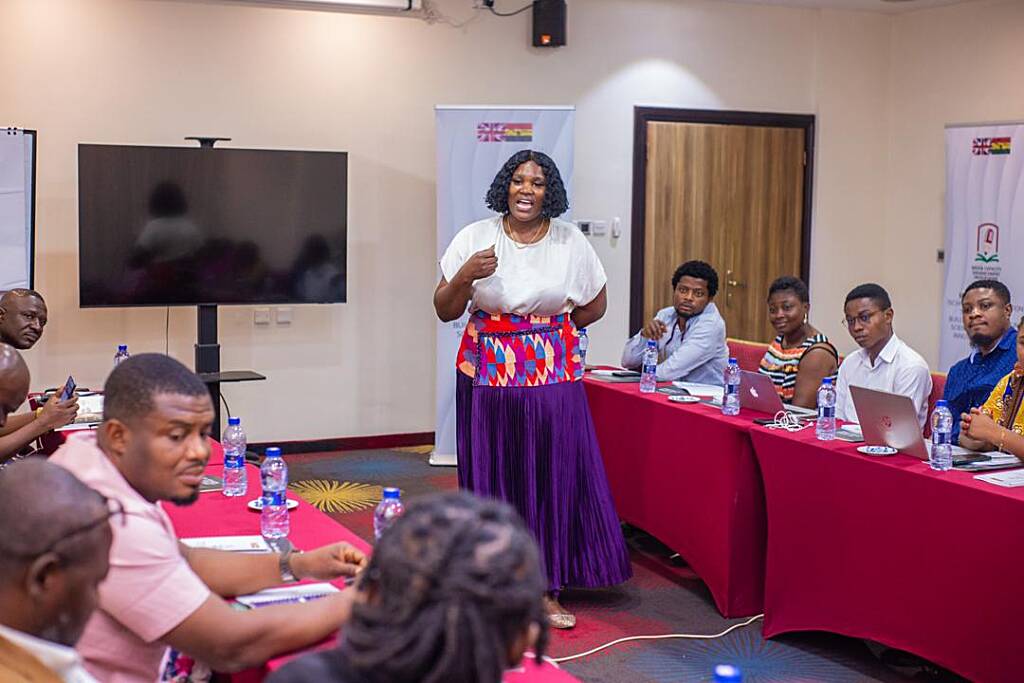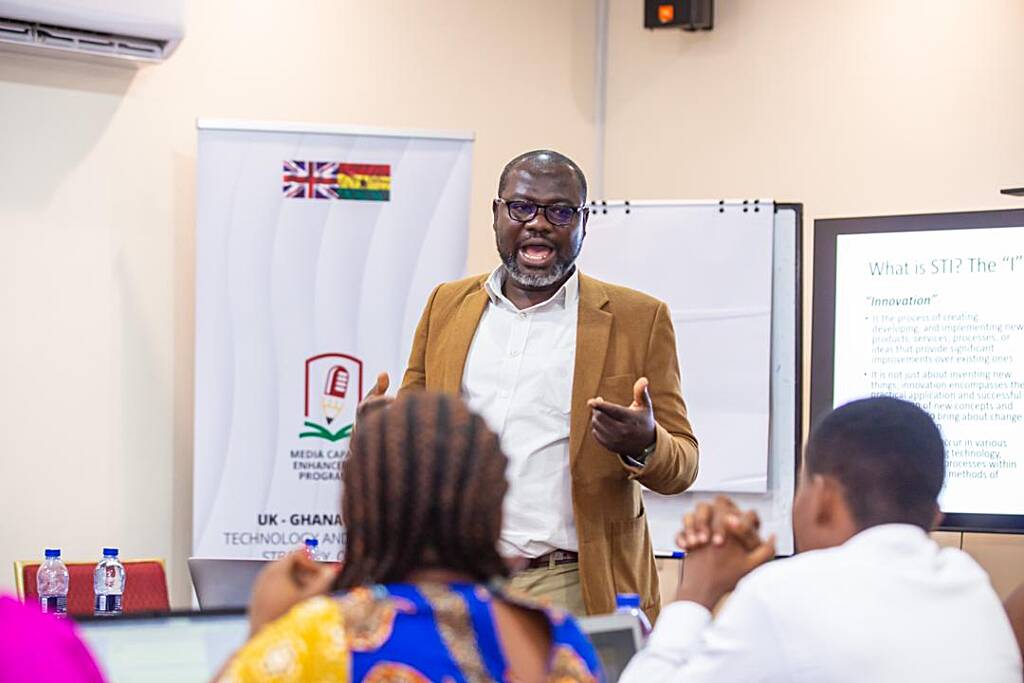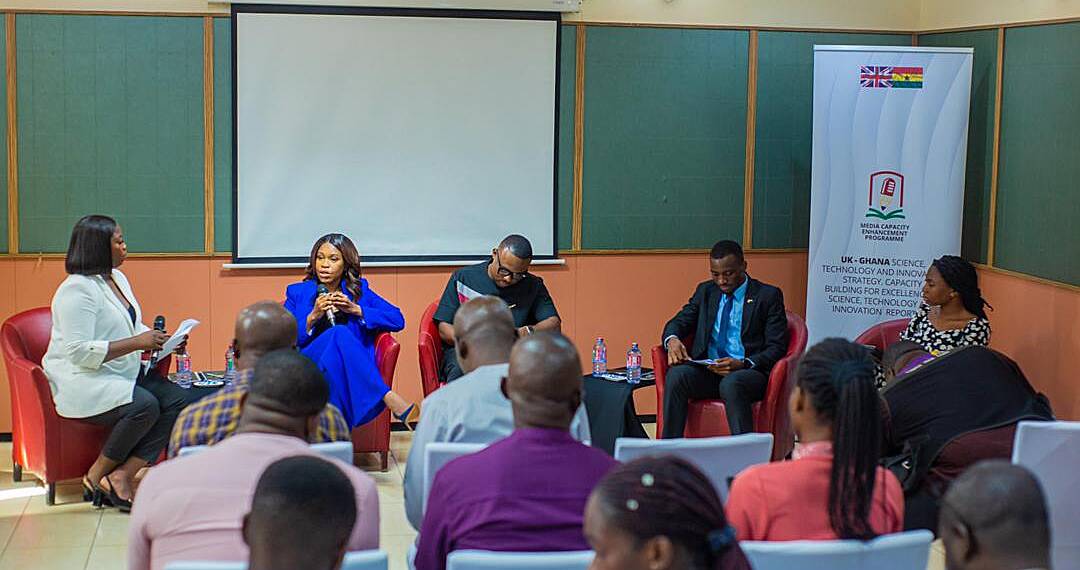By: Jude Tackie
The British High Commission and Ghana’s Ministry of Environment, Science, Technology and Innovation (MESTI) have launched a media capacity enhancement programme aimed at improving media coverage of science, technology and innovation (STI).
The five-day residential program, the first of its kind, is designed to address a critical shortage of specialized science journalists in Ghana.
The programme, which commenced its residential phase on March 25th, 2024, promises to equip journalists with the necessary skills and knowledge to effectively report on complex scientific and technological topics.
In his opening address, Richard Sandall, Development Director at the British High Commission Accra, highlighted the significance of bridging the gap between scientific advancements and public understanding.
“There is a big barrier between what scientists know and getting that information to the people who can use it. Misinformation rushes in when there’s a lack of clear science communication,” said Richard Sandall.

The programme features a diverse array of sessions aimed at addressing the multifaceted challenges encountered by science journalists. Kwamena Kwansah-Aidoo, Chairman of the Media Capacity Enhancement Programme, outlined the obstacles faced by journalists, including a shortage of specialized science reporters and difficulties in translating technical information into accessible stories.
He further highlighted the importance of collaboration between scientists and journalists to ensure accurate and engaging science reporting.
“The program goes beyond technical skills training. Organizers aim to ignite a spark of purpose within journalists, empowering them to drive informed discourse and societal progress,” he added.

The first session, led by Dr. Gordon Akon-Yamga of CSIR, focused on Ghana’s National System of Innovation. Participants will also explore topics like storytelling, navigating science communication, and ethical standards in STI reporting.
The program features experts from Ghana and abroad, including representatives from the FCDO (Foreign, Commonwealth and Development Office) and the University of Ghana.
This collaboration between Ghana and the UK highlights the growing recognition of the critical role journalists play in bridging the science information gap and fostering public understanding.


















